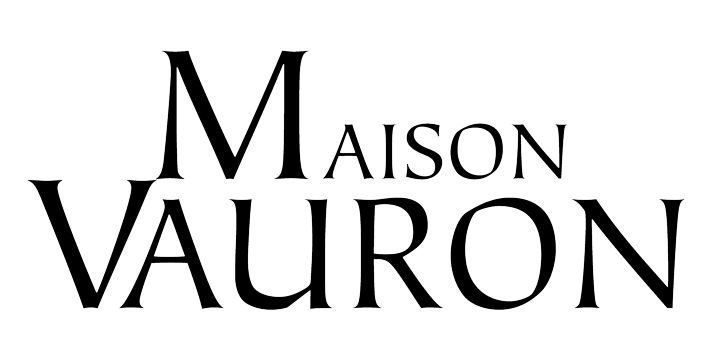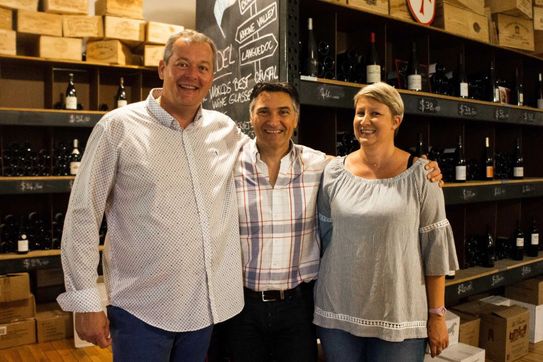Meet the Winemaker: Domaine Gilles Robin
Gilles Robin took over the running of his family's vineyard in 1996, with the freedom to produce his own wines. With a history of winegrowing spanning four generations, Gilles' aim was to realise the potential of the 35 year old vines. He immediately used only natural fertilisers and reduced yields to just 40 hectolitres per hectare to give a richer concentration of fruit and quality. Gilles' vineyard now extends to Saint Joseph (where he makes a tiny volume) and Hermitage, with wines gaining in subtlety and balance with every vintage.
We spoke to Gilles about his meticulous winemaking, certified organic farming and the complexity of the grapes Rhone Valley is most well known for.
MV: WE UNDERSTAND YOUR GREAT-GRANDFATHER WAS THE FOUNDER OF GILLES ROBIN, PURCHASING THE FIRST 1.27HA PLOTS IN 1920. CAN YOU TELL US MORE ABOUT HIS STORY AND DESIRE TO PRODUCE WINE?
GR: In 1925, when my Grandfather Albéric was alive, wine was not recognised as a "cru" and it was difficult to sell. Local farmers produced their own wine, as well as fruit and vegetables, and raised poultry, pigs and rabbits for meat to make a living. They also kept cows and goats for milk and cheese, and horses for draught power. They were self-sufficient and sold their produce at the markets to buy sugar, salt and coffee. They didn't earn much money, but they were happy because had everything they needed, and were rich in other ways!
MV:THE ESTATE HAS BEEN PASSED THROUGH GENERATIONS WITHIN THE ROBIN FAMILY. WHEN DID YOU TAKE THE REINS, AND CAN YOU DESCRIBE WHAT THE ESTATE WAS LIKE AT THE TIME?
GR: When my father Michel took over management of the estate 1965, he devoted himself to developing viticulture and arboriculture. While maintaining the vines, he also devoted much energy to fruit tree growing, where he set up a local irrigation network that made it possible to water the fruit trees, ensuring regular production, and therefore an income. At that time, between 1965 and 1970, some winegrowers did not hesitate to uproot their vines or reduce their vineyards in favour of fruit trees to earn more money. That wasn't the case at the estate. My father was young and dynamic, and he played a full part in expanding the business through new acquisitions, without needing to remove any vines.
With his father-in-law Alberic, he enjoyed making their wine - a few demi-muids (big barrels). But he soon decided to join the Cave Cooperative, a union of producers who owned their own cellars and had modern equipment for the time (concrete vats were gradually replacing wooden barrels). The time had come to devote 200% of our time to arboriculture, which was generating a good income between the ‘70s and ‘90s.
In the 1990s, 90% of the vineyards were vinified at the cooperative winery. Then the European Union came into being, and it subsidised Spain enormously to develop its arboriculture, but as salaries were only half as high as in France. The French fruit industry very quickly went into decline, with French fruit being too expensive and no longer sold to the benefit of our Spanish counterparts. Between 1995 and 2015, most of the trees were uprooted, as was also the case at the estate in 2013.
A new generation of winemakers was coming through at this time (A. Graillot 1985, L. Combier 1990, G. Robin 1996). Young winemakers who had studied oenology decided to withdraw their vines from the cooperative cellar.
AOC Crozes-Hermitage began to be talked about. Wines from Bordeaux and Burgundy saw their prices take off, and exports of French wines broke records (the French paradox, Robert Parker, Michel Rolland), which benefited our region - international wine merchants were looking to France for little-known, high-quality appellations!
The great story of The Northern Cotes du Rhone began and inspired other young vintners. In the early 2000s there was an explosion of new Caves Particulières, some forty wineries to enrich the Crozes-Hermitage offerings.
MV: YOU’VE BEEN REGARDED AS A METICULOUS WINEMAKER, FARMING YOUR PLOTS USING ORGANIC METHODS. WHAT ARE THE BENEFITS OF ORGANIC FARMING AND WHAT CHARACTERISTICS DOES THIS IMPART ON THE TERROIR, AND YOUR WINES?
GR: Right from my first vintage, it seemed obvious to me that I should return to a traditional method of cultivating the vines, one that respects the vine stock. In doing so, we’ve been able to produce grape varieties quintessential to our terroir. I made wine for three years in Savoie (1992 - 1995) for a consultant oenologist, and at that time, working with winemakers, I realised how complex viticulture and winemaking are. Despite the complexity, I was young, determined and had a sharp palate and we were a certified organic farm by 2009.
MV: CAN YOU TELL US ABOUT YOUR GRAPES AND THEIR MAXIMAL COMPLEXITY?
GR: Our local and exceptional grape varieties - Syrah, Marsanne and Roussanne – are complex expressions of a grape varietals that live in harmony on terroirs with different profiles (pebbles, granite, red clay, white clay). That complex terroir is where the magic happens!
MV: WHAT DO YOU THINK DEFINES THE RHONE VALLEY AS A WINE REGION? HOW DO YOU THINK WINEMAKING IN THE RHONE DIFFERS TO OTHER REGIONS IN FRANCE?
GR: The Rhone Valley is divided into two parts, and the northern part stands out for its exceptional terroirs with hillside vine growing. It’s also known for wine made from a single grape variety – Syrah. Syrah expresses all the complexity and diversity of the terroirs – it’s more austere on the granitic soils and more accessible and warmer on the pebbles.
MV: IN YOUR VIEW, WHAT ARE THE MOST IMPORTANT ASPECTS OF MAKING QUALITY WINE?
GR: Rigour, because the vine is a living being, and we must give it all the attention it needs at the different stages of its growth and development. Patience, because the results of our work are not immediate. Resilience, because despite all our efforts, the expected results are not always forthcoming! And finally, passion, because this is not a job like any other, it's a vocation, a sacrifice of your life, a permanent stress to achieve excellence, or at least to come close to it.
MV: FOR ANYONE VISITING THE RHONE FOR THE FIRST TIME, WHAT WOULD YOUR TOP RECOMMENDATIONS BE?
GR: Go for a bike ride or a walk through the vineyards to feel the soul of our different crus and, of course, try to meet the winemakers so that you can talk with them about their wines – they also have the best local recommendations for eating and drinking in the region!
Discover wines from Domaine Gilles Robin.

